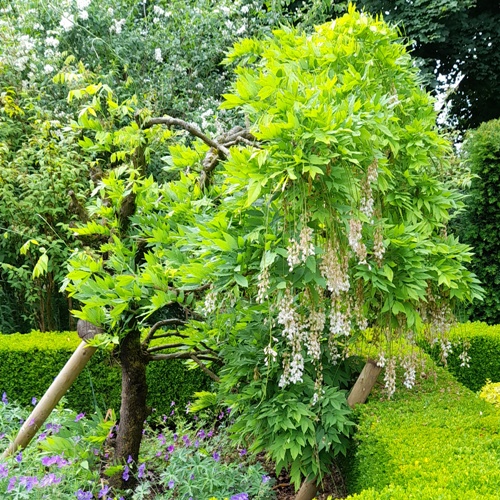Tigger's Green Paw
Japanese Wisteria
Animal Safety: Dogs: No Cats: No Rabbits: No
Japanese Wisteria can make animals sick, so it is best avoided.
Lifespan: Japanese Wisteria are listed as living for over 50 years. There is one species in Japan that is over 150 years old.
Soil Type: Prefers rich organic well drained soil with full sun.
Japanese wisteria, scientifically known as Wisteria floribunda, is a stunning vine cherished for its cascading clusters of fragrant, colourful flowers. In many cultures, the Japanese wisteria symbolizes love, longevity, and the beauty of nature.
The introduction of Japanese wisteria to the UK can be traced back to the 19th century when botanical explorers brought back exotic plant specimens from East Asia.
In the UK, popular varieties of Japanese wisteria include 'Alba' with its white blooms, 'Rosea' with pink flowers, and 'Violacea Plena' with rich purple hues.
Providing adequate support for its twining vines and regular watering during the growing season will help ensure a healthy and vibrant display of flowers.
Pruning is essential for maintaining the health and shape of Japanese wisteria vines. Regular pruning in late winter or early spring helps promote flowering, control growth, and prevent overcrowding. By following proper pruning techniques, gardeners can enjoy a flourishing wisteria vine that enchants with its cascading blooms season after season.
Japanese wisteria is poisonous to dogs, cats and rabbits, so care should be taken if there is any growing in your garden.
If any animals eat Japanese wisteris they can become sick, lethargic, stomach pain and vomiting.
If you suspect they have eaten any, then seek medical advice from your vet as soon as possible. 


